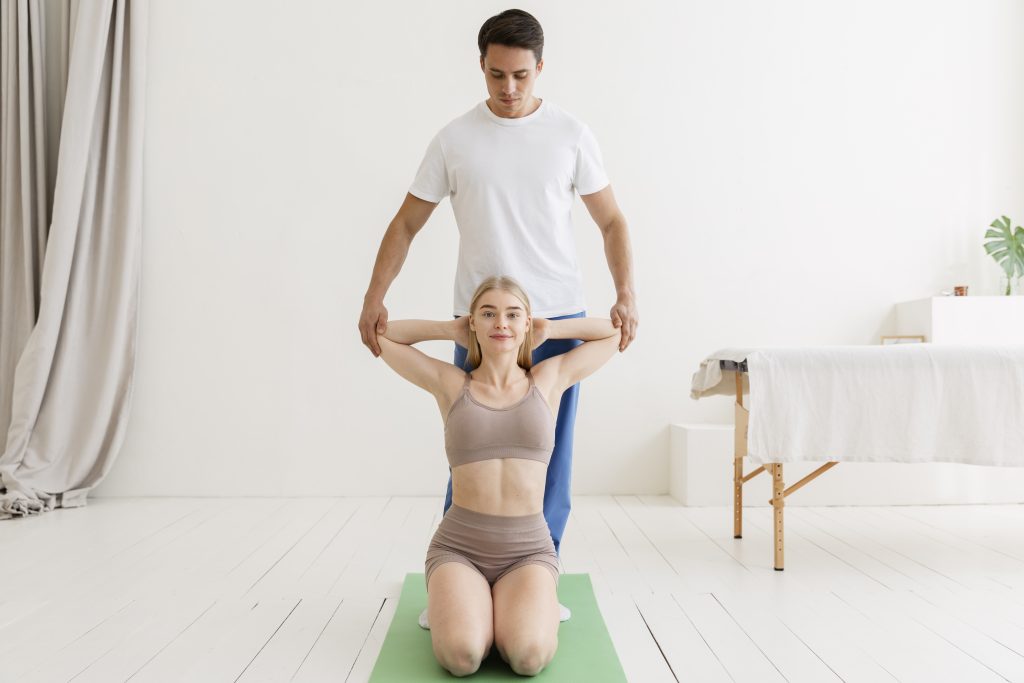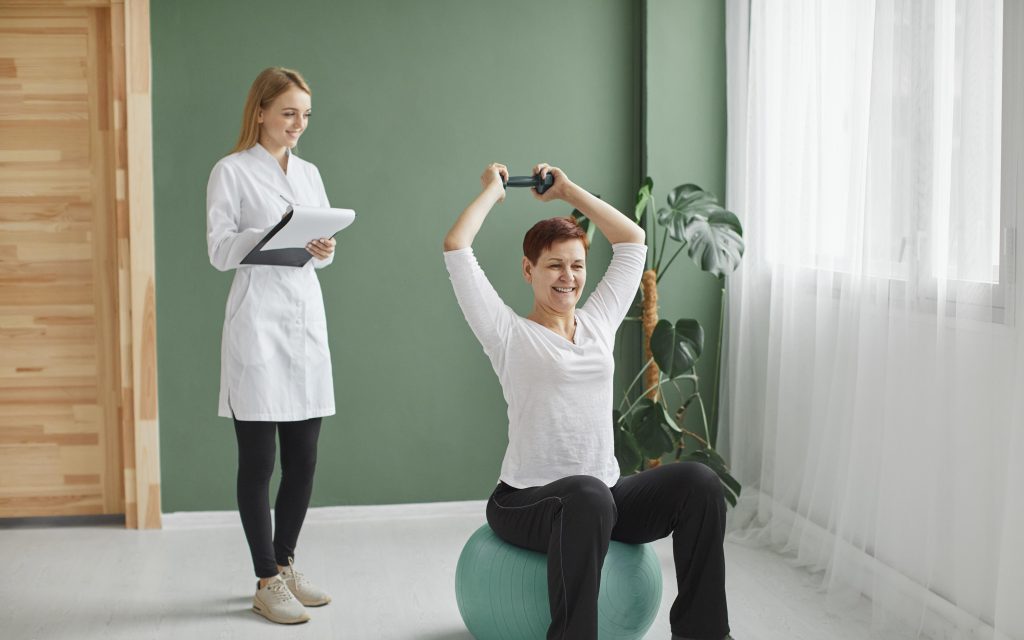Yoga and Meditation are effective techniques for helping in the recovery from addiction. Yoga surely combines both physical activity and mindfulness. Moderate to vigorous physical activity that combines mind and body exercises can help people achieve sobriety more quickly. Additionally, it aids in lowering anxiety and despair, which are the main indicators of a drug addiction relapse. Regular Yoga practice by addicts benefits their blood circulation, posture, vitality, flexibility, and lack of pain throughout the body. It also improves their digestion, lungs and heart function, prevents diabetes, and stimulates their brain system. Together, these factors reduce the likelihood of withdrawal symptoms and let patients handle them appropriately. They also help patients have better breath control, gradually lower stress levels, regular hormone levels, and less aggressive behaviour. Studies and research on a number of these cases have shown that yoga practice is really beneficial. Numerous doctors, psychiatrists, and academics agree that Meditation is an extremely important component of the therapy of addiction. Sitting comfortably, keeping your eyes closed, and gradually repeating one word or letter. According to studies, meditating for 10 to 20 minutes per day helped alcohol or tobacco addicts break their addictions earlier and maintain their abstinence for several months. It has also been discovered that meditation is beneficial in the treatment of a number of other illnesses and disorders; normal people can practice this for a healthy and happy life. Depending on the type and extent of your addiction, hypnotherapy may be effective in just one session or may call for a longer-term strategy. Clinical hypnotherapy (also known as hypnosis) depends on the use of the imagination and the link between the mind and body. In order to improve both physical and emotional wellness, it makes therapeutic suggestions. Numerous characteristics of yoga, art or music therapy, t’ai chi, and guided meditation are also shared by hypnosis. At the end of this process, we make sure to take a research based medical examination of individual patient with utmost care. This process has many behavioural medicine techniques applied to come out of Drug addiction. What ever the patient learns in this game therapy they will be given a tool kit to apply those techniques to come out of drug addiction step by step. This Game therapy is one of the best and unique holistic therapy for Drug de-addiction.

Yoga and meditation therapy integrates physical postures, breathing techniques, mindfulness, and relaxation practices to support mental, emotional, and physical well-being. These therapies are often used as complementary treatments for stress, anxiety, depression, and chronic pain. The approach is holistic and encourages inner balance and resilience.

Yoga and Meditation are effective techniques for helping in the recovery from addiction. Yoga surely combines both physical activity and mindfulness. Moderate to vigorous physical activity that combines mind and body exercises can help people achieve sobriety more quickly. Additionally, it aids in lowering anxiety and despair, which are the main indicators of a drug addiction relapse. Regular Yoga practice by addicts benefits their blood circulation, posture, vitality, flexibility, and lack of pain throughout the body. It also improves their digestion, lungs and heart function, prevents diabetes, and stimulates their brain system. Together, these factors reduce the likelihood of withdrawal symptoms and let patients handle them appropriately. They also help patients have better breath control, gradually lower stress levels, regular hormone levels, and less aggressive behaviour. Studies and research on a number of these cases have shown that yoga practice is really beneficial. Numerous doctors, psychiatrists, and academics agree that Meditation is an extremely important component of the therapy of addiction. Sitting comfortably, keeping your eyes closed, and gradually repeating one word or letter. According to studies, meditating for 10 to 20 minutes per day helped alcohol or tobacco addicts break their addictions earlier and maintain their abstinence for several months. It has also been discovered that meditation is beneficial in the treatment of a number of other illnesses and disorders; normal people can practice this for a healthy and happy life. Depending on the type and extent of your addiction, hypnotherapy may be effective in just one session or may call for a longer-term strategy. Clinical hypnotherapy (also known as hypnosis) depends on the use of the imagination and the link between the mind and body. In order to improve both physical and emotional wellness, it makes therapeutic suggestions. Numerous characteristics of yoga, art or music therapy, t’ai chi, and guided meditation are also shared by hypnosis. At the end of this process, we make sure to take a research based medical examination of individual patient with utmost care. This process has many behavioural medicine techniques applied to come out of Drug addiction. What ever the patient learns in this game therapy they will be given a tool kit to apply those techniques to come out of drug addiction step by step. This Game therapy is one of the best and unique holistic therapy for Drug de-addiction.






Get in touch with us using the enquiry form or contact details below.


Roar Wellness Akhil Farm, 1 Daisy Lane, Off Central Drive, DLF Chattarpur Farms,New Delhi 110074, India
help@roarwellness.org
+91-9319977207

Yes, I tried a few beginner yoga classes online during the lockdown. It helped me feel calmer, but I struggled to stay consistent with it. I’ve never tried meditation seriously, but I’m curious about it.
Work has been really stressful lately, especially managing deadlines and meetings. I also find it hard to disconnect mentally even when I'm at home, which affects my sleep.
Yes, I’m definitely open to trying those methods. I like the idea of using natural ways to relax instead of relying on medication.
I have some lower back pain and stiffness in the mornings. I’d prefer gentle stretches and would want to avoid anything that puts pressure on my spine.

If you are suffering from an addiction, you will recognize the hugely damaging impact that it can have upon relationships, as well as your career and finances. Coming to terms with your addiction and seeking help can therefore be an extremely difficult but rewarding first step on the road towards abstinence and rehabilitation.
WhatsApp us